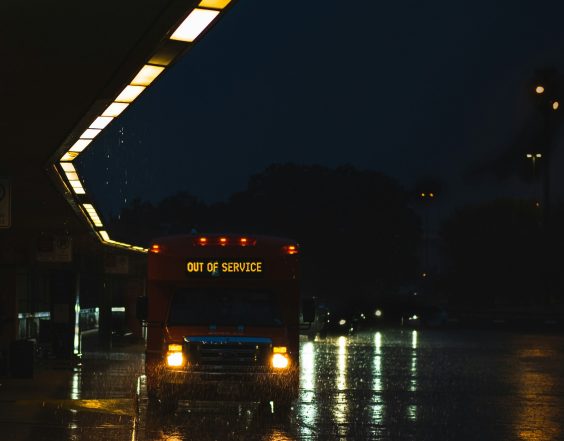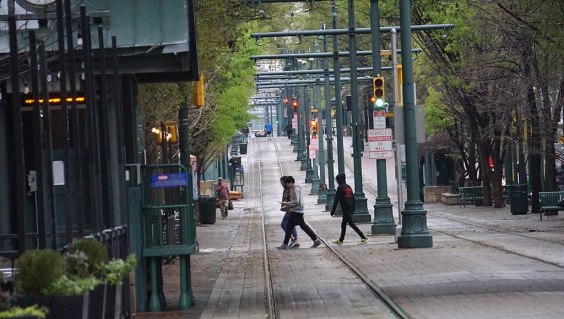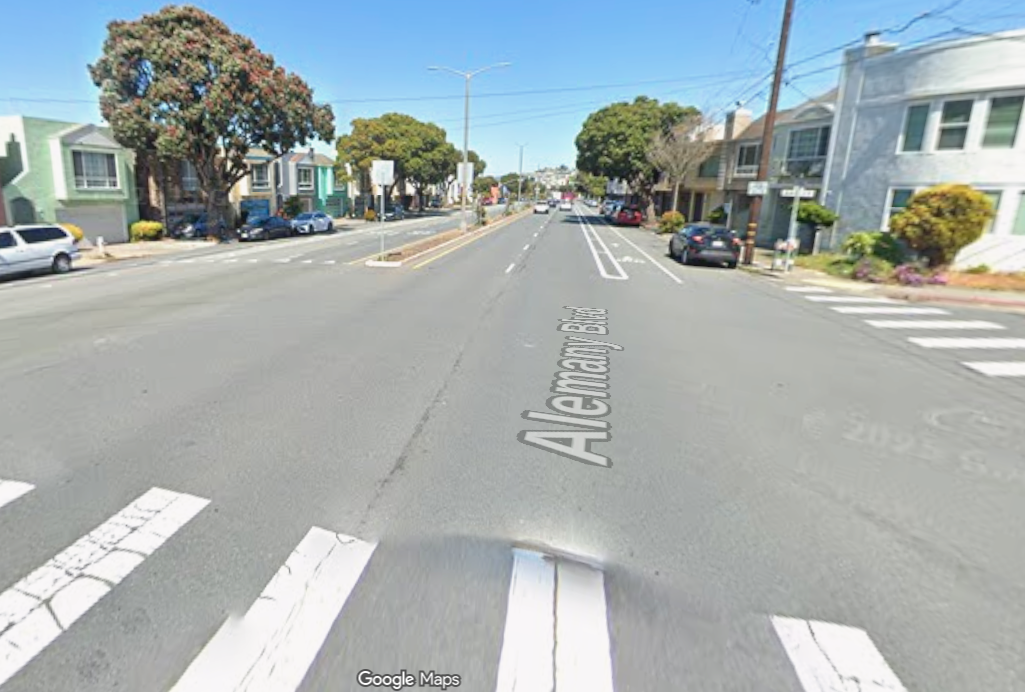 Malik Rahim says Americans need to change their lifestyles and move away from fossil fuel dependence.
Malik Rahim says Americans need to change their lifestyles and move away from fossil fuel dependence.The BP oil gusher in the Gulf of Mexico provides a fitting backdrop for the fifth anniversary of Hurricane Katrina on August 29. Who better to connect the two disasters than longtime New Orleans community organizer Malik Rahim, who helped found Common Ground Relief in the aftermath of the 2005 catastrophe? Rahim, who calls himself a "novice cyclist but veteran activist," is tackling the 2010 spill with a 1600-mile bike ride along the Gulf and up the eastern seaboard to Washington, D.C., to raise awareness of the need to wean ourselves off fossil fuel dependence.
He originally planned to hit D.C. on September 22, the same day that Bike4Peace is bringing cyclists from all over the country there on World Carfree Day. But extreme heat has slowed the 62-year-old ex-Black Panther, and his arrival may be delayed. He aimed to ride 35 miles a day for 45 days but may take longer.
Numerous media reports have commented on how Gulf communities hit by the BP oil spill were just on the verge of finally recovering from Katrina. But few mention the historic responsibility of the oil and gas industry in the hurricane's destruction. Geography places New Orleans in danger from storms, but it took decisions that favor a petroleum-based transportation system to wreck the city's natural defenses, leaving it more vulnerable than nature intended.
Rahim is drawing attention to the role of wetlands in the Gulf. One reason Katrina so clobbered New Orleans was the damage that oil exploration and drilling had already done to the wetlands that used to buffer the mainland. Wetlands absorb the impact of a hurricane's storm surge like a sponge. The wall of water that produced most of Katrina's trail of wreckage reached almost 30 feet in places. Every square mile of wetlands reduces that storm surge by about a foot.
"Our wetlands are our first line of defense against hurricanes," Rahim said. "People need to know that Lousiana's already unbelievable rate of wetlands loss of a football field-sized piece of land every 37 minutes has increased exponentially by the spewing BP oil spill." Canals and roads serving the oil industry have long eaten up Louisiana's coastline, exposing the city to the full brunt of storms.
"This planet is the most precious gift, and we have destroyed it," said Rahim in an interview with The Root discussing his Bike for the Gulf effort. "As an African American raised under Jim Crow, who lived under segregation, who suffered the indignities of living under poverty, life has always been an arduous task for me. But I'm a firm believer that nothing comes without sacrifice, and this is a small sacrifice. I want future generations to know that yeah, it was an old, crazy, dreadlocked, black man on a bike who told us we have to change our lifestyles."
Katrina crystallized the folly of auto dependence in many ways, before, during, and after the storm. Immense traffic jams slowed evacuees on Interstate 10 out of town. Residents of New Orleans without cars were left to their own devices. Officials failed to provide buses for people who had no other way out. Ironically, cars left behind in the storm then contributed to the toxic goo of the floodwaters by leaking oil and gasoline, and wrecked car bodies added to piles of debris. Poor planning and the restrictiveness of private ownership kept abandoned people and abandoned autos from being matched up.
The New Orleanians left behind were overwhelmingly poor and black. As Robert Bullard, director of the Environmental Justice Resource Center in Atlanta, says about the U.S. system in general in his book, Highway Robbery, "Transportation apartheid has been created."
 Common Ground Relief, founded in the weeks following Hurricane Katrina, has organized nearly 25,000 volunteers of all ages and backgrounds to work for the recovery of New Orleans. It has gutted over 3000 homes, provided for the basic needs of thousands of New Orleans residents, restored wetlands and remediated toxic soil in the city, and founded an independent health clinic and women's shelter. Photo: Common Ground Relief.
Common Ground Relief, founded in the weeks following Hurricane Katrina, has organized nearly 25,000 volunteers of all ages and backgrounds to work for the recovery of New Orleans. It has gutted over 3000 homes, provided for the basic needs of thousands of New Orleans residents, restored wetlands and remediated toxic soil in the city, and founded an independent health clinic and women's shelter. Photo: Common Ground Relief. In the United States, where our mentality assumes a car (or two or three) in every household, evacuation officials just couldn't conceive of a mass exodus that didn't rely on private automobiles, and plans for New Orleans were hit or miss. Cuba, a poor country with very low rates of car ownership, managed to evacuated millions of people in 2008, even moving their cows and horses, when three major hurricanes-Gustav, Ike, and Paloma-hit the island. A total of seven people died from all three hurricanes combined.
The impact of Katrina continues to be felt in New Orleans five years later, and transportation is one of the areas showing dramatic changes. Public transit ridership has fallen 65.7 percent since the hurricane, according to a pain index published annually. Ridership has dropped from 33 million in 2004 to 13 million in 2010, suggesting that the people erased from a rebuilt New Orleans are largely transit users, who also happen to be mainly people of color and low income. So the same people who couldn't get out of New Orleans in 2005 remain unable to come home in 2010.
"I'm here to raise awareness that we can't leave this to future generations to pay for our arrogance," Rahim said. "We have to make sure that our children and grandchildren are able to enjoy life on this planet in the same way that we are enjoying it. That's why I'm biking. I know if I can do it at 62, then we can clean up this oil spill. But we need not fall back into that drunken level of prosperity. We can no longer be 5 percent of the world's population and consuming 25 percent of the world's resources. We have to find alternatives to using fossil fuels."
He points out in a video on the Bike for the Gulf site that BP's recent profits for the year come to just about the same amount as would be needed to restore Louisiana's wetlands: $6 billion.
Meanwhile, Bike4Peace left the Bay Area in July, and contingents that plan on meeting the cross-country cyclists are heading to Washington from Atlanta, Boston, New York City, Buffalo, and Toronto throughout September. One participant is former Georgia Congresswoman Cynthia McKinney, another African American activist described on the Bike4Peace website:
"She spent 12 years in the U.S. Congress and a week in an Israeli jail. Now she's spending two months on a bicycle trip across North America. Cynthia McKinney, the Green Party's 2008 nominee for president, is riding with Bike4Peace 2010 to demonstrate the bicycle as a solution to climate change, oil wars, the health crisis, and economic malaise. 'This is really hard, but I'm so proud of these young people who volunteered for Bike4Peace because they want to be a part of the solution, rather than sit back and merely complain about the problems,' said McKinney."
 Hurricane Kelsey campaigns for a walkable Mission and Cesar Chavez in her new city. No one knows what happened to her New Orleans family.
Hurricane Kelsey campaigns for a walkable Mission and Cesar Chavez in her new city. No one knows what happened to her New Orleans family. New Orleans and Katrina are never far from my thoughts, and the August anniversary is always a melancholy reminder of our country's failings. My personal connection to the disaster is resting her snout against my foot as I write this.
Hurricane Kelsey, the category 5 dog, was rescued from the city's flooded streets about a week after Katrina hit. She wound up in foster care in the East Bay without a scrap of information about her people. Did they die? Did they leave and plan to come back in a few days? Did they go to the Superdome and get bused hundreds of miles away with no means to return home? Shortly after my partner, Iris, and I returned in spring 2006 from volunteering with Common Ground, the "tempest on four legs," as a friend calls her, went up for adoption, and our fate was sealed. Never would we forget Katrina.




